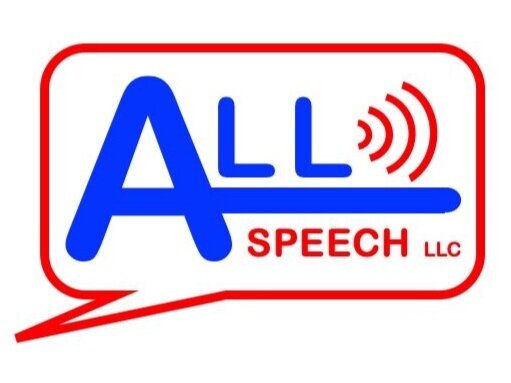Adult Speech-Language Pathologists (SLPs) may not be as visible as pediatric SLPs. The fact is we see adult clients in various settings with a focus on maximizing function and quality of life. Let's go over the cases that come to SLP's attention.
• Articulation and Phonological Processing Disorders that were unresolved since childhood.
• Apraxia of Speech is a planning and programming disorder of speech production without any problems in the muscles. There are two types. One type is Childhood Apraxia of Speech (CAS), which presents from one's childhood. The other type is acquired Apraxia of Speech (AOS), which develops later in life due to neurological insults. These events could be strokes, diseases, tumors, or traumatic brain injuries.
• Dysarthria present with speech problems caused by the weakness, deviated speed, range of motion, or coordination of the structures required for Speech. There are different types of dysarthrias due to the sites of lesions that cause the problems.
• Fluency Disorders present with effortful/halting Speech. They are stuttering and cluttering.
• Voice disorders could be due to three different causes. First, it could be due to the misuse of the vocal organ. Second, voice disorders could be consequences of neurological causes. Third, it could be secondary to organic problems such as laryngeal cancer.
• Resonance disorders have three different types. It could be caused by mislearning of the vocal tracts use, structural problems, or neurophysiological deficit. It is often associated with cleft palate/lip.
• Other choice therapies (not disorders) could include accent reduction, professional voice, singing voice, or gender-affirming voice therapy.
Language: difficulties with formulating what to say, understanding what was said, or both
• Aphasia and Stroke Recovery
• Expressive language (speaking/sign language)
• Receptive language (understanding of language)
• Reading, writing, and spelling disorders – including Dyslexia and Dysgraphia
Hearing, specifically relating to the impact on Speech and language
• Auditory Processing Disorder
Swallowing/ Feeding: addressing situations when adults do not take nutrients properly
• Dysphagia (Swallowing Disorders)
• Oral Myofunctional Disorders (OMDs) and negative oral habits (nail-biting, resting chin on the hand, lip licking)
Cognitive Aspects of Communication/Neurological Disorders including problems in communication due to neurocognitive deficits.
• Attention and Executive Function deficits
• Memory and Processing Speed/ Recall problems
• neurocognitive disorders (dementia) or Mild Cognitive Impairments (MCI)
• Problem Solving/ Safety Awareness problem.
Social Aspects of Communication: understanding of appropriate use of language in different social situations
• Autism Spectrum Disorder (ASD)
• Pragmatic Language Disorders – Social Skills and Problem Solving
Communication Modalities: substitutive approach when verbal language is not functional. SLPs guide the use of Augmentative and Alternative Communication (AAC) Devices – High tech (such as iPad devices with communication apps) or low tech (such as a Picture Exchange Communication System [PECS])
An essential part of being an SLP for adults is restoring the lost functions and providing strategies to facilitate independence. One of the best parts of working with adults is that they have unique life stories, and we get to help them share them. To get started with us, call us at 972-533-1157 or contact us here, and we will discuss creating your individual plan. We are looking forward to speaking with you soon.
Sources:
https://www.asha.org/events/slp-summit-glossary/
